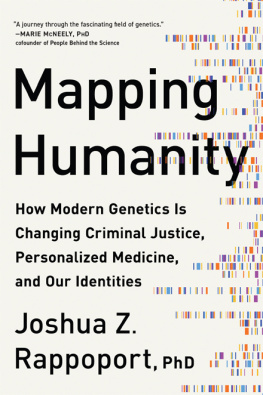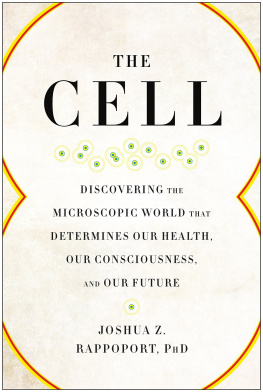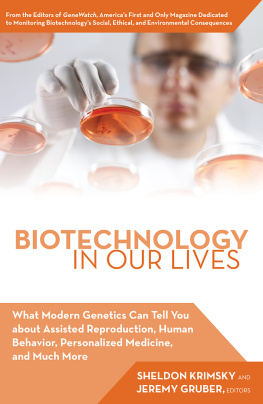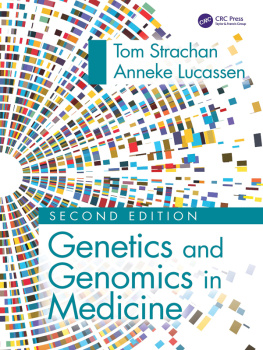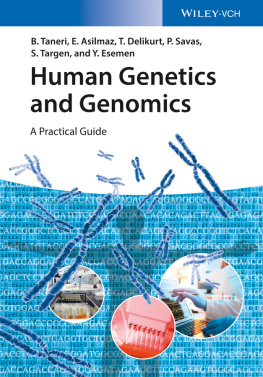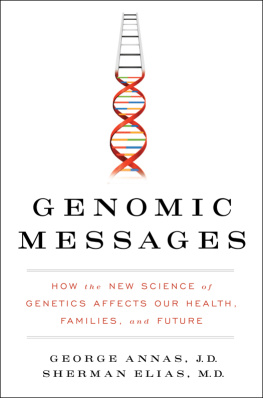Contents
Guide
Praise for Mapping Humanity
In Mapping Humanity, Joshua takes readers on a journey through the fascinating field of genetics. This book weaves together key scientific background information, exciting real-world applications, and important ethical issues in an accessible and engaging way.
Marie McNeely, PhD, cofounder of People Behind the Science and Unfold Productions
This book will serve as a very current and approachable way for the public to better understand this very interesting time in genetics and genomics, where the combination of sequencing and DNA manipulation technologies has brought us, while revealing the ethical and societal impacts.
Elaine Mardis, coexecutive director of the Institute for Genomic Medicine at Nationwide Childrens Hospital


Mapping Humanity copyright 2020 by Joshua Z. Rappoport, PhD
All rights reserved. No part of this book may be used or reproduced in any manner whatsoever without written permission of the publisher, except in the case of brief quotations embodied in critical articles or reviews.

BenBella Books, Inc.
10440 N. Central Expressway, Suite 800
Dallas, TX 75231
www.benbellabooks.com
Send feedback to
BenBella is a federally registered trademark.
First E-Book Edition: July 2020
Library of Congress Cataloging-in-Publication Data
Names: Rappoport, Joshua Z., 1974- author.
Title: Mapping humanity : how modern genetics is changing criminal justice, personalized medicine, and our identities / Joshua Z. Rappoport.
Description: Dallas, TX : BenBella Books, Inc., [2020] | Includes bibliographical references and index.
Identifiers: LCCN 2019059816 (print) | LCCN 2019059817 (ebook) | ISBN 9781950665082 (paperback) | ISBN 9781950665259 (ebook)
Subjects: MESH: Human Genetics | Genetic Techniques
Classification: LCC QH431 (print) | LCC QH431 (ebook) | NLM QU 450 | DDC 611/.01816dc23
LC record available at https://lccn.loc.gov/2019059816
LC ebook record available at https://lccn.loc.gov/2019059817
Editing by Sheila Curry Oakes
Copyediting by Miki Alexandra Caputo
Proofreading by Lisa Story and Greg Teague
Printed by Lake Book Manufacturing
Indexing by WordCo Indexing Services, Inc.
Text design by Publishers Design and Production Services, Inc.
Cover design by Pete Garceau
Cover image Shutterstock / majcot
Text composition by PerfecType, Nashville, TN
Distributed to the trade by Two Rivers Distribution, an Ingram brand www.tworiversdistribution.com
Special discounts for bulk sales are available.
Please contact .
This book is for Ben, Andrew, Madeline, Ema, and Kris.
CONTENTS
We are survival machinesrobot vehicles blindly programmed to preserve the selfish molecules known as genes.
Richard Dawkins, The Selfish Gene

Because the history of evolution is that life escapes all barriers. Life breaks free. Life expands to new territories. Painfully, perhaps even dangerously. But life finds a way.
Michael Crichton, Jurassic Park
E verything that is alive is made of cells. Your body is made of many different types of cellsincluding tiny white blood cells that fight infection, thin nerve cells that conduct electrochemical signals, skin cells that protect internal organs, and muscle cells that produce movement. Although all the cells in your body serve different functions, every cell has one key thing in common: your genome.
Most of your cells contain a nucleus, an oval-shaped structure inside the cell, and the nucleus of those cells contain the bulk of your genome, a library of your DNAeverything that makes you you. While there are a few types of cells that do not contain a nucleus, and thus have little DNA (like red blood cells and platelets), these are still derived from precursor cells that have a nucleus that is lost during the final steps of differentiation.
DNA contains the blueprints that make up the main structural and functional components of our cells, our bodies, and our selves. By studying the genomea field known as genomicswe can hone our understanding of the fundamental mechanisms governing health, disease, development, and evolution. The similarities and differences among specific genomes help answer questions including how we evolved into the complex organisms we are and the genetic basis of diseases. Furthermore, genomic technologies are today being harnessed in applications ranging from the criminal justice system to food production.
For the last twenty years, I have studied cell biology. Cell biologists like myself devote their careers to understanding how cells work. There are different ways that cell biologists go about discovering how cells function:
They mash up a bunch of cells and carefully quantify the various chemicals and molecules presenta bit like analyzing a milkshake to figure out how many strawberries went into it.
They take cells and make them grow together into organized clusters resembling the organs found inside the body, creating so-called organoids that can be studied in culture; these organoids are like cells but demonstrate some of the more complex characteristics found inside the body.
They use what we call model organisms, such as fruit flies and mice, to study cells in the context of simpler and more easily manipulated living systems. This information can then provide critical insights into how similar processes unfold in our own bodies.
As a microscopist, I use high-powered microscopes to study what is going on inside cells. Generally, microscopists label specific components of the cell, and we often do this with living cells in order to study the dynamic functions of important parts of the cell as the processes of life unfold. But this can be a bit like learning to cook while only tasting the finished dish.
When it comes to food, you can gain a lot of information by examining the taste and appearance of the end product. Its obvious that mashed potatoes are better when theyre smooth, rather than lumpy. You can taste the difference between bland, salty, and properly seasoned food. You can count the number of meatballs in your plate of spaghetti, and then break one open and see if it has onions inside. But to really understand how a dish is prepared, you need a recipe. The recipe tells you what goes into a particular dish, and how to prepare it. Without a recipe, how would you know how much garlic to add to the sauce, or when to add it?
To continue with our food analogy, you can learn a lot from viewing cells. But its the genome that tells you about the building blocks of an organism and how it operates. This is why the genome is so importantit contains the recipe for the unique dish that is everything alive.
HOW THE GENOME WORKS
Basically, the genome inside our cells encodes the proteins that make up the structures of our bodies and perform many of the functions required for life. Individual genes contain a specific sequence of DNA that corresponds to a particular protein generated through a series of chemical reactions. The proteins encoded by genes are the main structural and functional components of our cells. Enzymes are proteins that perform specific functional rolesthey can make a certain chemical reaction take place or act like a little molecular motor moving other proteins or structures around inside our cells. There are proteins that make our muscles contract, make our blood clot, make up our hair and fingernails, and perform countless other functions.
Next page
